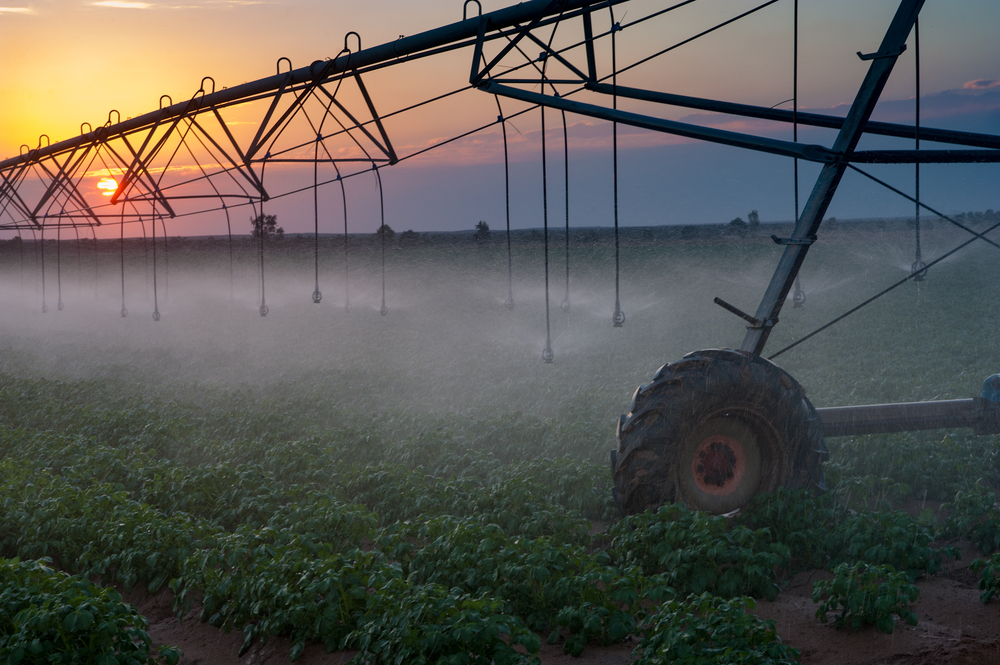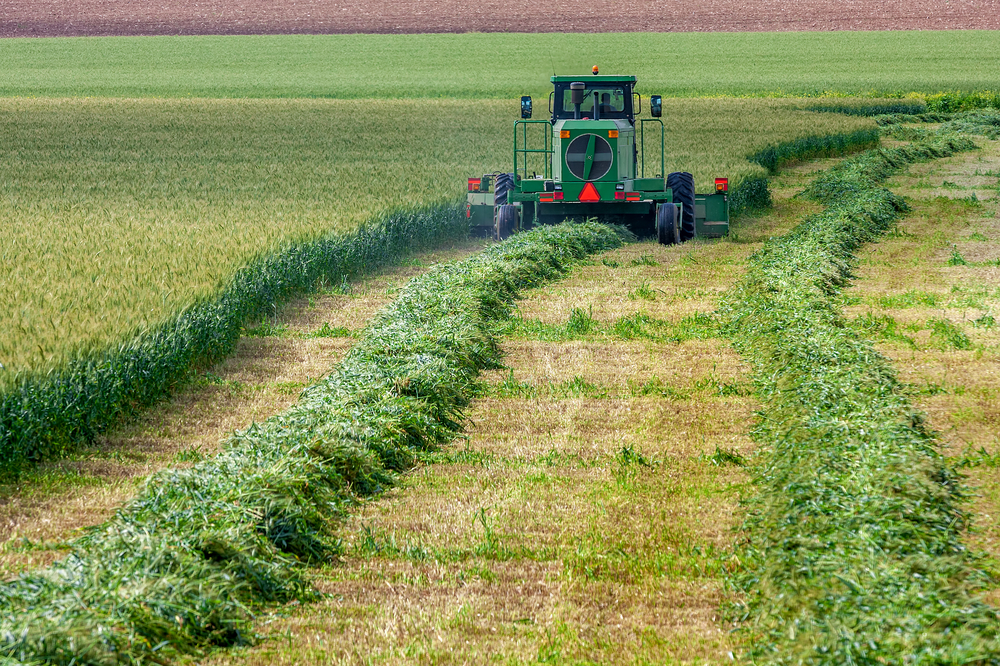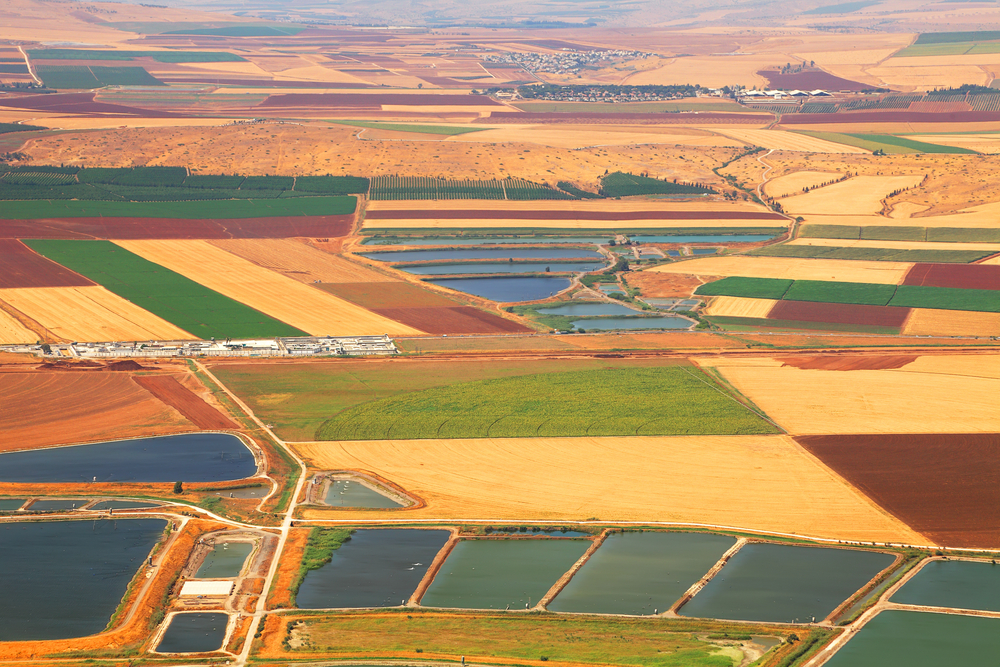Eliyahu Ozen: "A Farmer from the Kibbutz Told Me 'Now Everything Depends on Your Prayers'"
Recent drought years and water shortages are making survival increasingly difficult for farmers. Eliyahu Ozen, a veteran farmer, discusses these challenges and the daily connection with Hashem through the land. 'There is no such thing as a farmer who doesn't believe; everyone talks about the need to pray for rain.'
 (Photo: shutterstock)
(Photo: shutterstock)In recent years, the drought has repeatedly struck, with too few rains and too many warm summer days. Farmers are trying to survive the situation, but how long can they continue to do so?
Eliyahu Ozen, a veteran farmer living in Halutza in the south, has experienced both prosperous and difficult farming years. "In recent years," he describes, "the water sources in the country have been completely depleted. Drought years, population growth, unwise water usage, and pollution of some water paths create a severe water problem for the state. There is a theory that the world is entering a multi-year drought, and if this year is also a drought, our irrigation water quotas will be drastically cut. It will be very difficult to continue agriculture like this."
He explains the need for rain in various agricultural sectors: "There are field crops called 'plaha' that rely solely on winter rainfall, such as wheat, barley, and hay for livestock. Without rain, they will not grow. Conversely, there are field crops like watermelons or sunflowers that are irrigated either fully or partially. For them, rain reduces water consumption required for growth, which lowers our costs. Sometimes the farmer's entire profit comes from the reduced need for irrigation, and if there's not enough rain, sometimes there's no profit at all." Regarding greenhouse crops, Eliyahu adds: "Theoretically, rain isn't necessary in greenhouses, as irrigation is fully controlled. Moreover, they are sensitive to humidity, and too much rain can damage them. However, if there's no rain, water prices rise, making it not always profitable to grow."
 (Photo: shutterstock)
(Photo: shutterstock)Recent years have evidently become more challenging for all farmers. "The farmer's water quota is derived from the water situation in the country. Since the water sources are completely depleted, rain has become critical for all farmers. If there is not enough rain, our water quota will be cut. In the coming years, we will all pray for it in a special way."
"When I was a small child and it rained," Eliyahu adds, "my father used to tell me: 'Open the window and see many happy people.' Over the years, it seemed we were freed from that state, but that's not the truth. Water quantities have significantly reduced, their price has dramatically increased, which decreased the branch's profitability. Without water, there will be no agriculture."
Regarding water desalination as a solution, he explains: "Desalination will come in another five years, and even then, it doesn't solve the problem for agriculture. This is because desalination will raise water prices, and we need cheap water for farming to be profitable."
Weather-related Damages
Aside from rain, various weather conditions also affect crops. "Our biggest fear is from very cold nights without rain. Such a situation leads to terrible damage because the cold destroys the crops. When snow falls, for example, the whole country is happy, but for us, it results in heavy losses," Eliyahu explains. "If there isn't enough rain, and vegetables face humidity, that can also ruin them. Hail is a real catastrophe; it depends, of course, on the strength and size of the balls, but hail rips the greenhouse plastics, resulting in tremendous damage. It also damages the blossoms of fruits and vegetables, causing the flowers, from which the fruit or vegetable should grow, to fall, resulting in nothing growing afterward."
The ground is also affected by rain patterns. "For example, there's a series of creatures that live in the soil and aerate it. Without rain, they can't live," he explains, "Only when there is good rain in large portions, with two-day breaks between portions, is the situation excellent. That's ideal irrigation for our crops and soil."
Regarding the farmer's rain experience, Eliyahu shares: "One can say that a farmer's mood is measured by rainy days, possibly even more than by profits. When it rains, everyone smiles and enjoys, even if sometimes damage occurs. A farmer who returns home with mud on his shoes, dirties the floor, and is happy. It's a mental reality more than an economic one."
 (Photo: shutterstock)
(Photo: shutterstock)There are also times when special blessings are seen in the yield. "Sometimes you feel like a certain crop is about to end, and then it continues growing, prices are good, and you're just thankful to Hashem for the great bounty He's given you. It's an elevated feeling; you want to hug everyone you meet."
When crop damage occurs, however, the feeling is not easy. "You feel like Hashem does not want you. Like when it rains during Sukkot, and suddenly you have to leave the sukkah, feeling unwelcome before Hashem. That's how a farmer feels when his yield is ruined," Eliyahu describes.
There Is No Farmer Who Doesn't Believe
How do you cope nonetheless?
"Farming is perseverance. Every year, a farmer is at risk of perhaps having to stop because the investments are huge, and then many factors depend – rain conditions, soil problems, diseases and pests, market prices, and more. You never know if it will truly succeed. Farmers are veteran stock market personalities – they gamble every year."
Speaking about tough years he personally experienced, he shares: "There were years when I feared I wouldn’t be able to start the season. But I always got a 'push' from Hashem, who helped me continue. Sometimes it was through a side income unrelated to agriculture, sometimes through sudden price increases, and other various means only He can arrange."
 (Photo: shutterstock)
(Photo: shutterstock)"It's work where you feel Hashem with you every day," he continues, "Our sages called the order of seeds 'the order of faith.' A person believes in the Eternal and sows. Those who live this daily know how true it is. Even among secular farmers, there's no such thing as a farmer who doesn't believe. A farmer claiming to be an atheist would see his crops fail, and what would he say then? Everyone talks about needing to pray for rain. Not long ago, for instance, one of the heads of the national plaha organization called me, a man raised in a secular kibbutz, and said to me: 'Now everything depends on your prayers.'"
Eliyahu concludes his words with his deep connection to the land of Israel: "It is written, 'And you shall inherit it and dwell in it.' To inherit is to conquer, to dwell is to live in it. We want to live in our holy land, and part of that is agriculture, making the desert bloom. For me, producing the holy fruits of the land is a revelation of Israel's virtue in practical life, not just in spiritual life. I used to live in Gush Katif, and they destroyed everything. It was like losing a child for us, but as Jews, we don't know what despair is, and we don’t continue mourning too much. We recovered and rose anew, continuing to build with full strength. I hope we will be blessed with rains of blessing this year to help us continue working the land in our holy and beloved country."

